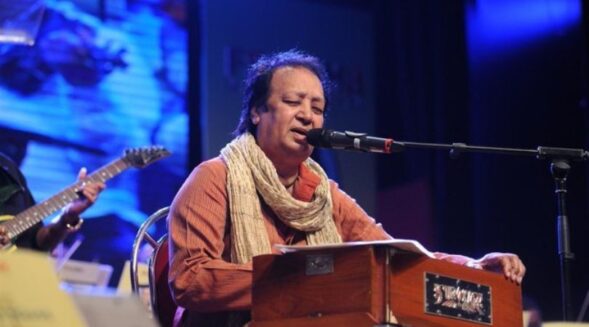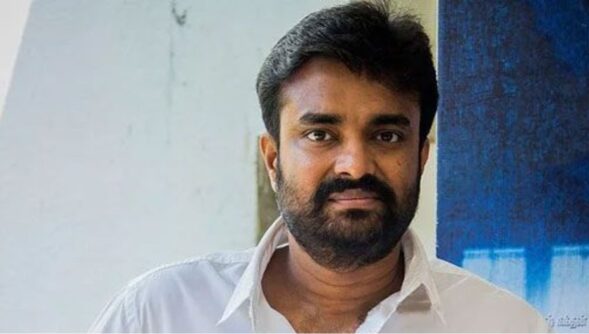
By Eleanor Mikkimchi Sangma | TURA:
The Garos, like the Khasi–Pnar, may be matrilineal, but also like them, their culture itself is deeply patriarchal, with leadership controlled by men. Indeed, the most universal assumption is that women are the weaker gender, and so their education has always been relegated to an “option”. In this context, the education provided to women at Christian Girls’ School 100 years ago, and continuing to this day, has become a milestone in Garo history, writes Eleanor Mikkimchi Sangma.
“Do⸱nok wagam gri, me⸱chik gisik gri” was a phrase coined by Garo men in the early days.
In its literal sense, it means, “A fowl has no teeth and a woman, no brains”. Society was of the belief that women were incapable of thinking for themselves, much less accomplishing something of importance.
In Garo Hills, patriarchy dictated that women were undeserving of education. Considered the weaker gender in all aspects, girl children in the early days of the Garo society were denied schooling, wrote Late Lindrid D Shira, Former Secretary, Meghalaya Board of School Education, in his account of the origin of Christian Girls’ School.
More than a hundred years later, Garo women have and continue to prove that the notion of being the weaker gender could not be further from the truth. Such empowerment of A⸱chik women through education started with the arrival of Miss Miriam Russel in Tura. Russel was sent by the Women’s Society in the United States of America after an appeal made by two missionaries, Revs. Marcus Clark Mason and Elnathan Gooding Phillips. They had realized that Garo Hills was in dire need of schools for education of women. Russel learned the language of the hill tribe, and also supervised the construction of the school which would come to be known as Christian Girls’ Higher Secondary School. In 1881, when the school was all geared for its opening, invitations were sent out to villages across the region to send their girls to start learning. The invitations went unanswered, and students were a no show.
The initial hiccup, however, was not going to deter Russel. She started touring villages in January of 1882, in an attempt to convince parents to send their daughters to school. A month later, it was home to 11 female students.
Keeping it running was a feat in itself, with the institution sometimes remaining empty almost throughout the year. After starting a fairly successful school in the village of Nisangram, she came back to Tura in 1884 along with 21 girls. However, she eventually had to leave town after getting married to a missionary man in Guwahati. Five Garo girls were given an opportunity to go to Guwahati with her and continue their studies.
As summer gave way to autumn in 1885, Miss Russell left Garo Hills for good. The school doors were shut for almost two years before they were finally reopened in 1887 by Miss Ella Cecillia Bond and Miss Stella Mason. The establishment of Christian Girls’ school was a whirlwind of determined missionaries and village expeditions. Remaining a co-educational school for years, it finally became an exclusively girls’ educational institution in 1920.
It was later upgraded into a high school in the year 1960, with the expansion of infrastructure. In 1968, Miss Zelda Lois Bate became the principal, the very last one of the foreign missionaries to run the school administration. After she left Garo Hills, Mrs Graciefields K Marak took charge of the administration, becoming the first A⸱chik headmistress of Christian Girls’ school. With the efforts of many, the school still stands, with more than 100 years of heritage within its walls.
When I was a student there, the school often felt like a sentient being with its own thoughts and memories. In a way, I guess it is. It has housed hundreds of students over the years, let them walk down its wooden floors; the essence of each soul must have left their mark somehow.
Melva Tegite Sangma, Lecturer at Tura Law College and batch of 2004, says she received varying experiences whilst studying in the school, in terms of learning and forming lasting relationships. “I think one of the best things I experienced was a sense of school belonging”, she says. Along with supportive teachers, she met her close friends who understood her as a person. “The bond that I share with my friends, the way we understand each other as individuals, have been the greatest gift this school has given me”, she tells me.
From headmistresses to lawyers, products of the school include plenty who have given back to the society in their own ways. “Women of the community have been trained and uplifted in many aspects, whether academic, cultural, social or economic”, Sangma says. The school offers a curriculum that ranges from sports, knitting, and sewing to the traditional dance of the Garos, Wangala. Sports week drew many participants whilst the annual Wangala dance competition held in autumn was an occasion the whole school looked forward to every year, I remember.
Women who learned skills such as sewing have, in turn, helped others in learning the same. The school has also produced many great teachers, some of whom have started their own institutions. “Going forward, I hope the school produces more women who are God-fearing and are capable and willing to work for the good of the community”, Sangma adds.
Many A⸱chik women spend their entire schooling years here, where they learn the importance of being a woman. Half of the women from my mother’s side of the family are products of the same institution. It stands tall in the centre of Tura, a pioneer in the education and upliftment of Garo women.
My dream of becoming a writer also has its foundation in the wooden halls of Christian Girls’ School. As students, we learnt about folklore and legends of the tribe, about traditions and culture passed down through A⸱chik storytellers and writers. It made me realize culture can survive through words, whilst words survive through storytellers.
Albeit the need for improvement, A⸱chik community has realised over the years that the identity of a woman is not rooted in her relationship to the men in her life. She can be an officer, a teacher, a doctor, or an artisan and establish her own identity in society. The change in attitude towards women can largely be credited to the education of Garo women, a vision fulfilled over the past century.
ALSO READ: Behind the curtain and on the reel






